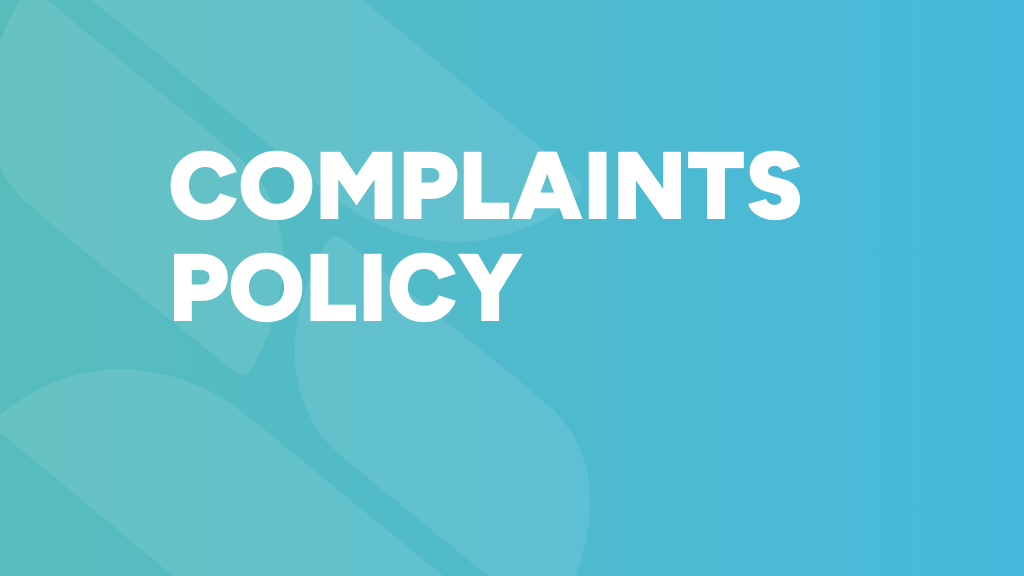Complaints Policy and What to Publish on Your School Website
Complaints Policy and What to Publish on Your School Website
Complaints Policy and What to Publish on Your School Website

Every school and academy must ensure that details about their complaints policies and procedures are clear, accessible, and compliant with statutory guidance. This requirement, updated by the Department for Education (DfE) in October 2024, ensures that schools remain transparent and accountable to parents, carers, and other stakeholders.
In this blog, we’ll outline the specific school website requirements for publishing complaints policies, breaking down the expectations for maintained schools, academies, trusts, and FE colleges.
Why Publish a Complaints Policy?
A complaints policy serves two critical purposes:
- Transparency and Trust: Publishing a clear complaints procedure reassures parents and carers that the school or academy is committed to addressing concerns fairly and effectively.
- Compliance: Both maintained schools and academies are required by law to publish complaints procedures. For some, this includes additional requirements related to SEND complaints and whistleblowing policies.
Statutory Requirements for Complaints Policies
The complaints policy requirements vary slightly depending on the type of school. Below, we outline what maintained schools, academies, trusts, and FE colleges must publish:
Maintained Schools
Maintained schools must:
- Publish a Complaints Policy: This policy must comply with Section 29 of the Education Act 2002 and should outline how complaints are handled, including steps parents and carers can take if they are not satisfied with the school’s response.
- Provide SEND Complaints Arrangements: Details about arrangements for handling complaints related to the support provided for children with special educational needs and disabilities (SEND) must be published. These details should be included as part of the school’s SEN information report.
The DfE has also provided best practice guidance to help maintained schools develop and review their complaints procedures. Ensuring the complaints policy is written in clear, accessible language is critical to meeting these requirements.
Academy Schools and Trusts
For academies, the complaints procedure must meet the requirements outlined in Part 7 of Schedule 1 of the Education (Independent School Standards) (England) Regulations 2014. Here’s what must be published:
- Complaints Policy: This policy must be available to parents and carers of children attending the academy. It should detail the steps for raising a complaint and outline how complaints are handled at each stage of the process.
- SEND Complaints Arrangements: Like maintained schools, academies must publish details of arrangements for handling complaints related to SEND support. These details should also be part of the academy’s SEN information report.
- Whistleblowing Procedure: Academy trusts are required to publish details of their whistleblowing procedures, ensuring transparency and accountability for staff members who may need to raise concerns about malpractice or wrongdoing.
Further Education (FE) Colleges
FE colleges must:
- Publish a Whistleblowing Policy: The whistleblowing policy should be readily available and must be reviewed regularly to ensure it remains up to date and reflective of best practice.
Best Practices for Publishing Complaints Policies on Your School Website
Publishing your complaints policy effectively on your website involves more than just meeting the statutory requirements. Here are some tips to ensure your policy is clear, accessible, and user-friendly:
- Create a Dedicated Policies Section: Include a section on your website specifically for policies and procedures, making it easy for visitors to locate the complaints policy. This section can also house related policies, such as your SEND information report or whistleblowing procedure.
- Write in Plain Language: Avoid jargon or overly complex language in your complaints policy. Parents and carers should be able to easily understand the steps they need to take to raise a concern and how their complaint will be handled.
- Provide Clear Steps: Break down the complaints process into clear, actionable steps. For example:
- Step 1: Informal discussion with a teacher.
- Step 2: Formal complaint submitted to the headteacher.
- Step 3: Escalation to the governing body or trust if unresolved.
- Include Key Contacts: Make it easy for parents and carers to know who they should contact at each stage of the complaints process, providing email addresses or phone numbers where appropriate.
- Ensure Accessibility: Publish the policy in formats that are accessible to all, including those with disabilities. Consider providing a downloadable PDF version that is screen-reader compatible.
- Update Regularly: Include a review date on the policy itself, and ensure that it is reviewed periodically to reflect any changes in legislation or school processes.
- Link to Related Policies: Cross-link to related documents such as your SEN information report or whistleblowing procedure to create a comprehensive and transparent resource for stakeholders.
Special Advice for Multi Academy Trusts (MATs)
For Multi Academy Trusts (MATs), centralising and standardising complaints policies across all schools within the trust can streamline the process and ensure consistency. Here’s how MATs can approach this effectively:
- Develop a Trust-Wide Template: Create a standardised complaints policy template that each school within the trust can adopt. This ensures consistency in approach while allowing schools to make minor adjustments for local context.
- Centralised Oversight: The trust should provide oversight to ensure all schools are following the agreed complaints procedure and publishing the required information, including SEND complaints arrangements.
- Publish Whistleblowing Procedures: Academy trusts are specifically required to publish their whistleblowing procedures. Ensure this policy is easy to locate on the trust’s website, as well as on individual school sites if applicable.
- Monitor Compliance: Regularly review school websites across the trust to ensure that all statutory policies, including complaints procedures, are published and up to date.
Conclusion
Publishing a clear and accessible complaints policy is not just a statutory requirement—it is an essential step in building trust and transparency with parents, carers, and staff. Whether you are a maintained school, academy, or FE college, ensuring that your complaints policy meets the latest school website requirements will help you demonstrate accountability and a commitment to addressing concerns effectively.
By taking the time to organise, review, and present your policy in a user-friendly format, you create a valuable resource for your community while ensuring full compliance with DfE guidelines. For more tips and guidance on meeting your statutory obligations, explore our School Website Requirements Guide or enrol in our School Website Compliance Course for step-by-step advice.








